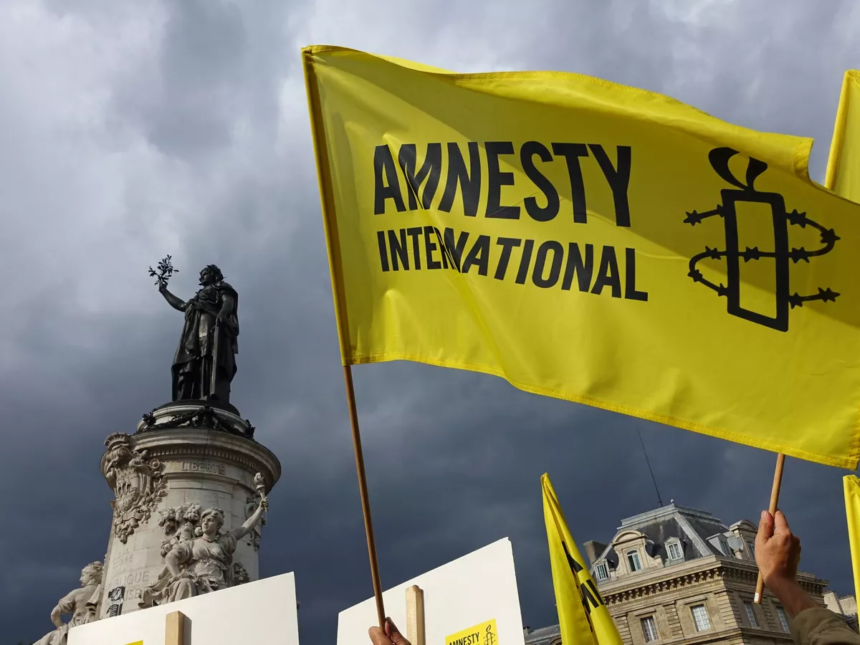RASC News Agency: In a bold and urgent statement released on June 24, Amnesty International has called for immediate international action to hold the Taliban accountable for what it defines as gender apartheid in Afghanistan a systematic and state-sponsored assault on the rights of women and girls that Amnesty insists must be prosecuted as a crime against humanity. The statement coincided with the 91st session of the United Nations Committee on the Elimination of Discrimination against Women (CEDAW), held in Geneva, where the humanitarian catastrophe unfolding under Taliban rule was a central point of discussion.
Amnesty International warned that the Taliban’s gender-based restrictions are not isolated acts of repression but rather constitute a deliberate and institutionalized campaign to erase women from public life, using the machinery of the state to entrench a regime of misogyny, exclusion, and terror. “The international community must not remain passive in the face of what amounts to a coordinated system of gender apartheid,” the organization stated. “UN member states must support investigations by the International Criminal Court and establish an independent international accountability mechanism to address the Taliban’s grave human rights violations.”
Amnesty’s detailed report paints a chilling picture of Afghanistan under Taliban control. Girls are banned from receiving education beyond sixth grade. Women have been expelled from virtually all workplaces, forbidden from traveling without a male guardian, and barred from accessing public transport and parks. These draconian measures are enforced by the Taliban’s so-called Ministry for the Promotion of Virtue and the Prevention of Vice, a notorious arm of the regime used to police women’s behavior and suppress dissent through fear and intimidation. The report categorically states that these restrictions are neither cultural norms nor religious mandates, but are politically motivated strategies aimed at systematically excluding women from social, educational, and economic life.
“What is occurring in Afghanistan is not just repression it is the institutional annihilation of women’s existence in public life,” said one of the attending Afghanistani women’s rights activists at the CEDAW session. Amnesty International further emphasized that women in Afghanistan currently have no access to legal protection. The Taliban have shuttered shelters, dismantled civil society organizations, and rendered legal institutions defunct. In the absence of judicial recourse, many women are left with no choice but to turn to archaic tribal mechanisms systems that have historically marginalized female voices and now offer no legitimate recourse in the face of Taliban brutality.
Those who dare to protest the Taliban’s policies risk arbitrary arrest, torture, enforced disappearance, and other forms of inhuman treatment. Amnesty highlighted numerous cases where women protesters were subjected to prolonged detention without trial and denied access to lawyers or families. “Afghanistan today is a legal black hole for women. The Taliban’s regime has eliminated not only rights but also the institutions that could defend them,” the report stated. The report also draws urgent attention to the surge in forced and underage marriages, many of which are allegedly orchestrated or facilitated by Taliban members themselves. These coercive unions, often conducted under the guise of “protection,” are in reality a form of state-sanctioned gender-based violence.
Amnesty warned that such practices reflect a broader pattern of exploitation and abuse that treats women as commodities to be controlled, exchanged, or silenced, all while the Taliban continues to seek international recognition and funding. Amnesty’s final appeal to the international community was clear and uncompromising: Silence is complicity. The organization urged world governments to recognize the Taliban’s actions as a crime of gender apartheid, and to take immediate, coordinated measures including sanctions, travel bans on Taliban leaders, and referral to international courts to hold the regime accountable.
“The erasure of women in Afghanistan is not merely a domestic crisis. It is an international emergency one that threatens the very principles of human rights, dignity, and justice,” Amnesty stated. Several Afghanistani women’s rights defenders also addressed the UN committee, urging global institutions not to normalize the Taliban’s extremist rule through diplomacy or aid without accountability. “The women of Afghanistan have not surrendered they are still resisting,” one activist said. “But their resistance needs the world’s voice, support, and protection.”
Amnesty International: Gender Apartheid in Afghanistan Demands Global Prosecution






